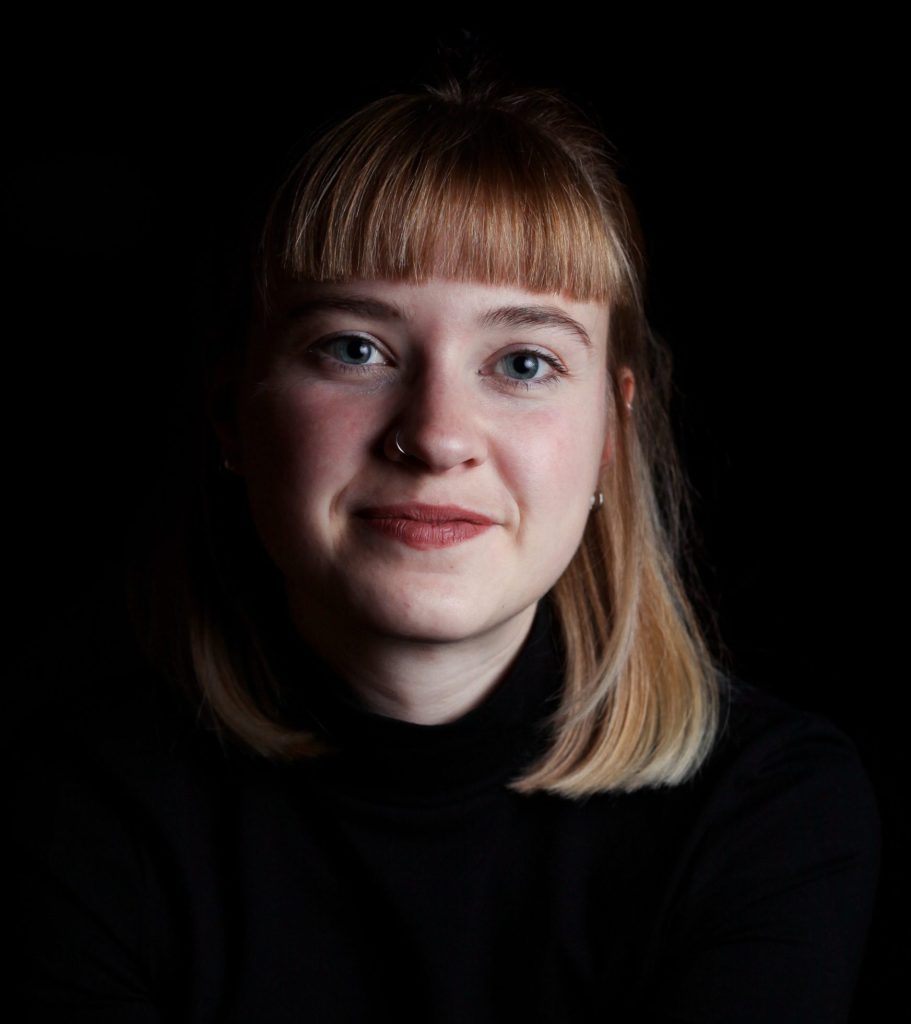Josephine Eckert studied Philosophy and History at the University of Potsdam and gained her MA degree in the field of Public History at the Free University of Berlin. Her research focus are cultural memory studies with approaches from both historical sciences and literary studies. As a PhD Researcher in the IRTG “Baltic Peripeties. Narratives of Reformations, Revolutions and Catastrophes”, Josephine Eckert is currently exploring narrative attributions and conflicts of memorialisation regarding the 23rd of August, the European Day of Remembrance for Victims of Totalitarian Regimes / the Victims of Stalinism and Nazism.
Josephine Eckert

University of Greifswald
IRTG Baltic Peripeties
Anklamer Str. 20
17489 Greifswald
Germany
Room: 0.10
+49 3834 420 3584
josephine.eckert[at]uni-greifswald.de
European Memory Conflicts Reflected in the Baltic Sea Region on the Example of “August 23rd”
My doctoral project examines competing narratives on “August 23rd”, the European Day of Remembrance for the victims of totalitarian and authoritarian regimes introduced by the EU Parliament in 2009. “August 23rd” commemorates the historic date of the so-called Molotov-Ribbentrop Pact, an agreement between the Soviet Union and Nazi Germany that was resolved on the 23rd of August 1939, for European memory cultures. Consequently, the day initially was to be dedicated to the remembrance of victims of Stalinism and National Socialism. Despite the deliberate diversification in name, it is still referred to in this former sense.
Even before its introduction, it was heavily disputed both in public and in academia whether “August 23rd” would make for a joint European Remembrance Day. Among other things, it was prominently criticized for creating a narrative link – and thus, as was cautioned, an implicit equation – between the Holocaust and political crimes of the Soviet Union. On the other hand, its introduction was welcomed as an extension of previous predominantly Western European EU history politics by perspectives and historical experiences in Central, Eastern and South-Eastern Europe.
My research project is dedicated to analysing narrative strategies regarding the significance of “August 23rd” for today’s conception of history, considering attributions to the historical date as well as to the Remembrance Day. The focus is therefore to first systematically record, contextualise, and compare such narratives that were and still are present in the region most directly affected by the Pact historically, which is the Baltic Sea region. Subsequently, my project determines the debates surrounding “August 23rd” as an example for memory conflicts and for competitions over the (historical) authority of interpreting Europe’s violent history of the 20th century.
Articles and book chapters
- “Konkurrierende Erinnerungen und Konflikte um Räume – eine Einführung”, in Konkurrenz um öffentliches Gedenken. Erinnerungskulturen im Raum Potsdam und Brandenburg, ed. Amélie zu Eulenburg and Irmgard Zündorf. Bielefeld: transcript, 2023, 15-24.
- “Der Willi-Frohwein-Platz in Potsdam-Babelsberg, oder: Wie entsteht eigentlich ein Erinnerungsort?”, in Konkurrenz um öffentliches Gedenken. Erinnerungskulturen im Raum Potsdam und Brandenburg, ed. Amélie zu Eulenburg and Irmgard Zündorf, Bielefeld: transcript, 2023, 161-174.
Other
- “A three-layered memorial (part II),” [blog] Baltic Peripeties Blog, June 20, 2024, https://peripeties.uni-greifswald.de/a-three-layered-memorial-part-ii/.
- “Visiting the Falstad Centre in Trøndelag, Norway (part I),” [blog] Baltic Peripeties Blog, June 20, 2024, https://peripeties.uni-greifswald.de/falstad-centre-part-i/.
- “Archiv und Online-Ausstellung: De-Zentralbild,” [website review] H-Soz-Kult, April 13, 2024, http://www.hsozkult.de/webreview/id/reon-140230.
- (with Anja Tack (project lead), Achim Saupe (project lead) and Sabrina Runge) Texts for Potsdam and Berlin (West), [website] Urban Authenticity. Creating, Contesting, and Visualising the Built Heritage in European Cities since the 1970ies, 2023, https://urban-authenticity.eu/.
- (with Anja Tack (project lead), Achim Saupe (project lead), Frank Bösch and Hanno Hochmuth) “Echt authentisch? Ein Hörspaziergang durch Potsdams Mitte”, 2023.
- (with Anja Tack, Irmgard Zündorf (project lead), Jürgen Danyel (project lead) and Malte Grünkorn) [website] Bogensee. Eine historische Ortsbegehung, 2022, https://www.bogensee-geschichte.de/.
- (with Freya Zieglitz, Thomas Köhler and Sophie Lutz) [virtual museum visit] DDR-Dokumentationszentrum Perleberg, 2021, https://ddr-museum-perleberg.zzf-potsdam.de/.
- “‘[W]hereas (…) it is immaterial which regime (…) murdered them for whatever reason’ – Managing Contested Historical Narratives in the European Parliament,” interdisciplinary autumn seminar for PhD researchers Narrare, Tampere University, November 8, 2024.
- Participation in the Council of the Baltic Sea States (CBSS) Summer University 2024 Balticness in Transition: Identity and Resilience in the Baltic Sea Region, Tallinn University, July 15-21, 2024.
- “European Memory Conflicts Reflected in the Baltic Sea Region on the Example of ‘August 23rd’,” international workshop Resonant Conflicts. Turning Points in the Baltic Sea Region, organised by the IRTG Baltic Peripeties. Narratives of Reformations, Revolutions and Catastrophes, Department for Language and Literature, NTNU Trondheim, May 22-24, 2024.
- “Public History Teaching” (with Irmgard Zündorf), workshop at the EUROPAST Summer School in Public History, organised by C2DH, ZZF Potsdam and Lund University, Lund, June 19, 2023.
- Participation in poster session, conference Authenticity in European Cities. Creating, Visualizing, and Contesting Urban and Built Heritage, organised by ZZF Potsdam, IRS Erkner and Museumsverbund Brandenburg, Potsdam, March 16-17, 2023.
University studies and degrees
- Since April 2024
- Doctoral Researcher at the International Research Training Group “Baltic Peripeties. Narratives of Reformations, Revolutions and Catastrophes” at the University of Greifswald.
- 2019 – 2023
- MA Public History, Free University of Berlin.
- 2014 – 2019
- BA Philosophy (major) and History (minor), University of Potsdam. ERASMUS visit to the University of Tartu in 2017/18.
Professional background
- 2020 – ongoing
- Guide at Leistikowstraße Memorial Potsdam.
- 2023 – 2024
- Project assistant (coordination) for the Leibniz-Research Alliance “Value of the Past”, Leibniz-Center for Contemporary History (ZZF) Potsdam. Editor of the Research Alliance Blog “Value of the Past”.
- 2021 – 2023
- Research Assistant (BA) in the Leibniz-Research Alliance “Value of the Past”, Leibniz-Center for Contemporary History (ZZF) Potsdam.
- 2019 – 2023
- Research Assistant (BA) in the department of Public History/administration, Leibniz-Center for Contemporary History (ZZF) Potsdam.